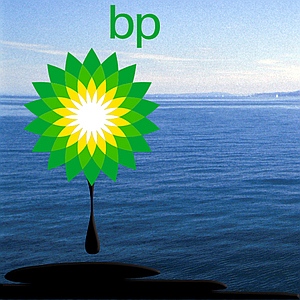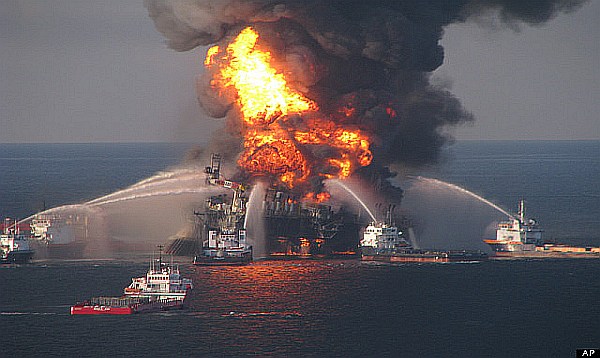London, England - Just when British Petroleum (BP) thought it was safe to go back in the water, it's become more dangerous than ever.
After March's $7.8 billion settlement with Gulf Coast fishermen and other private plaintiffs, a deal with the US government over civil and potential criminal liability for the 2010 Gulf of Mexico disaster seemed to be in reach for BP.
But sharp rhetoric in new filings by US government lawyers is a reminder that the UK oil major faces a tough path to securing a favorable outcome.
The Justice Department is charging the company with gross negligence for its actions related to the 2010 Deepwater Horizon oil spill in the Gulf of Mexico, mincing no words in the process.
US lawyers say they have emails by BP managers that complain of a "huge level of paranoia from engineering leadership" and "driving chaos" which were written only days before the spill; evidence showing BP is guilty of gross negligence in the 2010 explosion and subsequent oil spill.
In a memo accompanying the filing, government lawyers said the company had a "culture of corporate recklessness," which led to actions that "would not be tolerated in a middling size company manufacturing dry goods for sale in a suburban mall."
The new filing was a response to BP's request for final approval of the $7.8 billion plaintiffs' deal. Having not raised a specific objection to that settlement, the government may be keen to signal that it won't be a pushover in its own litigation.
 |
The financial stakes are high. BP's $38 billion of provisions for the disaster includes $3.5 billion to cover Clean Water Act fines. But, if these new charges can be made to stick, BP's financial liability under the act could be as high as $21 billion.
Can BP survive such a financial and public relations nightmare?
Until the Deepwater Horizon disaster, the Exxon Valdez oil spill in March of 1989 was the worst in US history. The company-operated supertanker ran aground in Prince William Sound in Alaska, spilling more than 250,000 gallons of oil. Exxon ultimately spent more than $4.3 billion in fines, cleanup payments, and settlements. BP's spill in the Gulf of Mexico was approximately 170 million gallons, oiling 650 miles of coastline.
BP has already spent $14 billion on activities responding to the spill. And, the $21 billion in fines the company is now facing doesn't include punitive and compensatory damages, which the company is trying to cap at $7.8 billion. Can the oil giant even begin to absorb all of this and stay solvent?
A quick look at the company's balance sheet says no - at least not out of cash savings. As of the most recent quarter, BP has about $15 billion in cash: enough to pay the $7.8 billion, but leave it $13.8 billion short if the full $21 billion in fines is levied.
If need be, could the company borrow its way out of this potential fiscal calamity? BP already carries $48 billion in debt, but is a cash generator, with operating cash flow of more than $19 billion in the last year alone. Chances are it could raise the money either in the corporate bond markets or from the banks.
But, shares in BP initially fell 3 percent on the news of the Department of Justice's official filing, bad news for both investors and the company. Luckily for BP, interest rates are at historic lows, so if the energy giant does need to finance its way out of this mess, the debt repayments shouldn't be crushing. Another silver lining for BP is that so far at least, no criminal charges have been filed; that would be a whole other kind of mess.
There's also a reasonable chance that, in the end, BP won't have to come up with the entire $21 billion, a settlement still looks like the most likely outcome. We've all seen enough situations in which a defendant facing a potentially crushing maximum sentence gets off with much less.
But securing a favorable deal just got harder for BP. The hit to the market cap suggests investors are now anticipating a new financial blow that exceeds what BP has already set aside for Clean Water Act fines, but well short of the maximum it could get.
That looks like a measured reaction to potentially more difficult circumstances.
Source: DailyFinance.com


